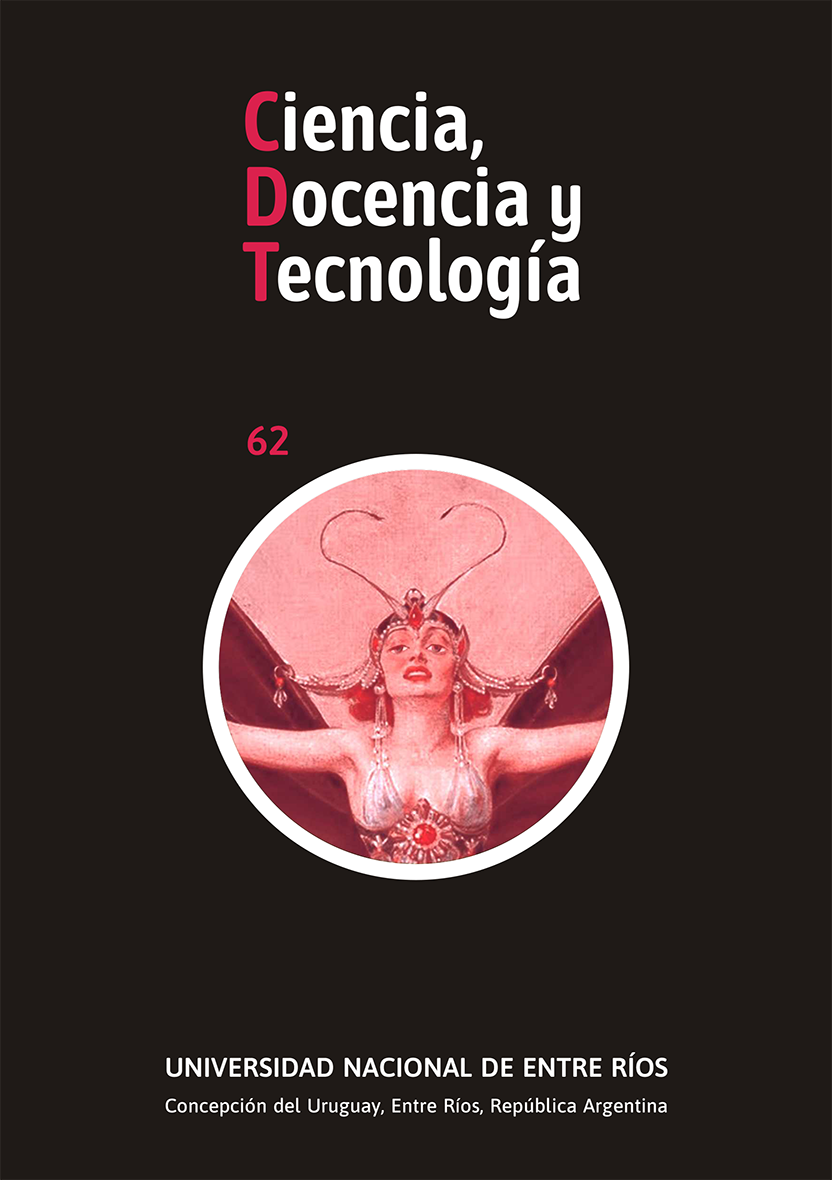Abstract
The objective of this work will be to describe and analyse the application of a didactic-pedagogical strategy that favours the socio-ecological approach for the design and planning of a project in civil engineering. Specifically, we characterize the didactic-pedagogical strategy of "Simulation of an Environmental Impact Study" (EsIA) in the curricular framework of the subject "Environmental Management and Sustainable Development" (GAyDS) of the Civil Engineering career of the General Pacheco Regional School. from the National Technological University, Argentina.
In order to structure the article, we first define the theoretical perspectives of analysis, second the approach to the importance of environmental education within civil engineering, third the particular context of the career in which this proposal is situated. Next, we describe the didactic-pedagogical strategy, as well as the reflections it elicits. Finally, we synthesize the relevance of the implementation of this strategy for the socio-ecological approach of civil engineering projects.
References
CARRASCO, J. (2004). Una didáctica para hoy. Cómo enseñar mejor. Madrid: Rialp.
DI PACE, M.; Crojethovich, M. A., y Ruggerio, C. (2012). Paradigmas Ambientales. En M. D. Bartrons, Ecología Urbana, 335-367. Los Polvorines: Editorial Universidad Nacional General Sarmiento.
FERNÁNDEZ-VÍTORA, V. C. (1993). Guía metodológica para la Evaluación de Impacto Ambiental. Madrid: Ediciones Mundi-Prensa.
FERRANTI, L. y Orellana, J. (2019). El estudio de casos en Ingeniería Civil. Una estrategia didáctica para la formación ambiental. Editorial Académica Española.
FERRER, D. et al. (2008). An international comparative analysis of sustainability transformation across seven universities. International Journal of Sustainability in Higher Education, 295-316.
GALLOPIN, G. (2003). Sostenibilidad y Desarrollo Sostenible: un enfoque sistémico. Serie Medio Ambiente y Desarrollo, publicación de las Naciones Unidas – CEPAL, n.° 64.
GÓMEZ OREA, D. (2002). Evaluación de Impacto Ambiental. Madrid: Ediciones Mundi-Prensa.
GUDYNAS, E. (2004). Cap. 3 “Una mirada histórica al desarrollo sostenible”. En E. Gudynas, Ecología, Economía y Ética del Desarrollo Sostenible, 47-66. Montevideo: Coscoroba del Centro Latino Americano de Ecología Social (CLAES).
HAESBAERT, R. (2011). El mito de la desterritorialización. México: Siglo XXI.
HARVEY, D. (2000). Espacios de esperanza. Madrid: Akal ediciones.
LEFEBVRE, H. (1974). La producción del espacio. Revista de Sociología, n.º 3, [s/d].
LEFF, E. (1998a). Educación ambiental y desarrollo sustentable. En Formación Ambiental, 9-10. México: PNUMA.
LEFF, E. (1998b). Saber ambiental, sustentabilidad, racionalidad, complejidad, poder. México: Siglo XXI Editores.
LEFF, E. (2014). La apuesta por la vida. Buenos Aires: Siglo XXI.
MALAGÓN PATIÑO, M. R. (2018). Concepciones sobre el aprendizaje y su relación con las prácticas pedagógicas. Informador Técnico, 108-119.
MORIN, E. (1990). Introducción al pensamiento complejo. Barcelona: Gedisa.
PORTO GONÇALVEZ, C. W. (2004). El desafío ambiental. México: Programa de las Naciones Unidas para el Medio Ambiente.
SWYNGEDOUW, E. (02 de 09 de 2009). La economía política y la ecología política del ciclo hidrosocial. Obtenido de https://doi.org/10.1111/j.1936-704X.2009.00054.x
TORRES PERNALETE, M. R. (2012). El compromiso social de las universidades: Alternativas para afianzar una educación para el desarrollo sustentable. En N. Asili Pierucci, Vida sustentable. La experiencia de un sueño compartido, 141-182. Puebla, México: Fundación de la Universidad de las Américas.
WASSERMAN, S. (1999). El estudio de casos como método de enseñanza. Buenos Aires: Amorrortu.

This work is licensed under a Creative Commons Attribution-NonCommercial-ShareAlike 4.0 International License.
Copyright (c) 2020 Sofía Astelarra, Dra., Guillermo Iván Bochaton

